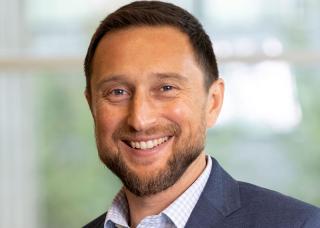Bringing emergency preparedness to life at UBC


Anyone passing the south end of Main Mall on June 28 may see a flurry of activity as emergency responders rush to help a group of injured runners.
Thankfully this won’t be a real-life emergency, but rather a mock-up exercise designed to test UBC’s response and capabilities in a time of crisis.
“This provides an opportunity for UBC to test how it responds in the event of a large-scale emergency,” explains Danny Smutylo, Manager, Emergency Management at UBC’s Vancouver campus.
“Most organizations have established systems to manage small incidents, but these don’t always allow for additional levels of support in the event of a large-scale emergency. By practicing emergency scenarios that require UBC to respond at multiple levels, we enhance our learning and increase our preparedness for real-life emergencies.”
The exercise, which has been carefully planned in partnership with emergency responders, will involve a vehicle hitting a large group of runners taking part in a mock race. The RCMP will take part alongside Vancouver Fire and Rescue, BC Ambulance and St. John Ambulance.
Volunteers have been sourced, with the help of the AMS, to act as casualties. There is also the possibility of mocked-up ‘injuries’ to make the exercise as realistic as possible.
“While recent real-life emergencies across the globe have heightened awareness, we have been planning this scenario for close to six months,” adds Danny.
“We can also apply the lessons learned from this emergency preparedness exercise to a whole variety of scenarios, ranging from an earthquake, a building collapse to a chemical explosion – anything requiring a mass emergency response and the coordination of multiple agencies.”
While recent real-life emergencies across the globe have heightened awareness, we have been planning this scenario for close to six months.
Danny Smutylo
As the Manager, Emergency Management, Danny’s role is to build awareness and advocate for people to be prepared and know how to react when things go wrong. He joined UBC in 2016, after several years in the health-care sector.
“So much of my work is about talking to people and raising awareness,” he says. “And it doesn’t always relate to big emergencies, I deal with risks at all levels to mitigate harm to UBC.”
In recent years, UBC has held other emergency preparedness exercises. In 2016, senior leaders gathered for a facilitated discussion, and in 2013 a similar mock exercise was held.
According to Danny, mock exercises create the most impact because they help bring the incident to life. They allow the university to map out its response in real time, such as how to support casualties, impacted students and concerned parents as well as work with community partners.
I deal with risks at all levels to mitigate harm to UBC.
Danny Smutylo
For those not taking part in the exercise? Danny has some advice – which he regularly refers to in training sessions and workshops.
He explains: “If you do nothing else when you get home tonight, have a conversation about what you are going to do in the event of an earthquake, fire or large-scale evacuation. Talk about meeting places and have a family plan. That is one of the most powerful things you can do to be prepared.”
Find out more about the emergency exercise.
For more information about emergency preparedness, visit the Risk Management Services website.
Find the latest news, updates, events, and useful dates from across UBC, curated for faculty and staff by Internal Communications.
Access a library of resources from multiple UBC websites, all in one place.